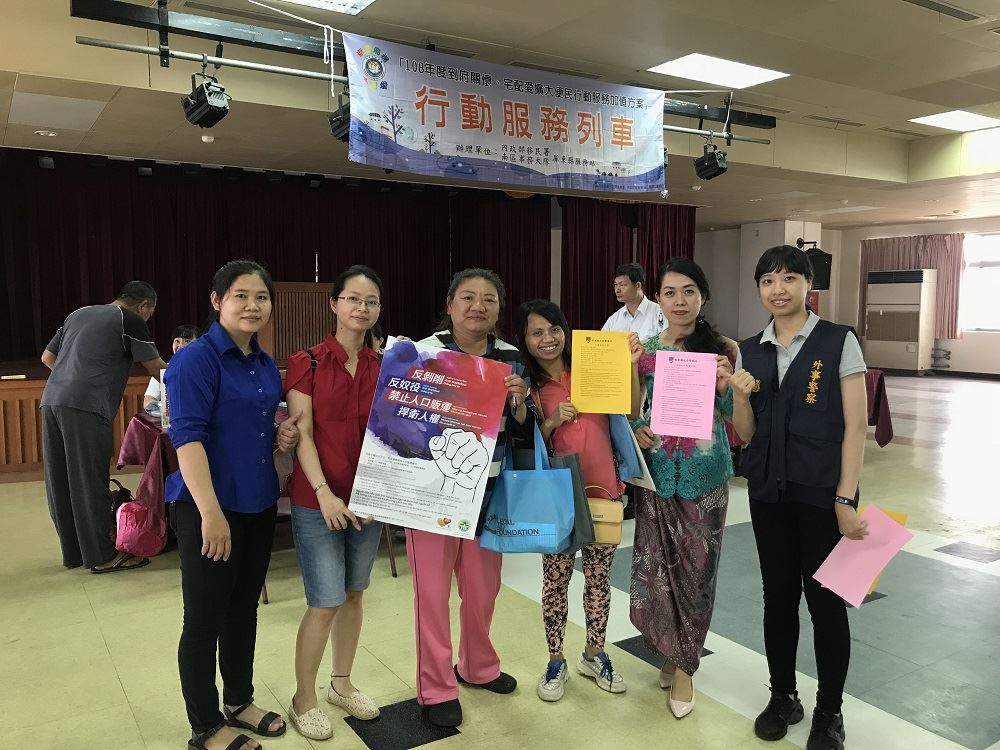In order to provide new residents and migrant workers with more convenient services, the Ministry of Internal Affairs’ Immigration Department of Pingtung County Service Station has held the "Mobile Service Train” event and cooperated with various local organizations to visit Donggang District Fisheries Association of Pingtung County, providing various assistance such as the extensions of residence permit, receiving documents for solving problems and conducting several consulting services.
The event began at 2 pm on June 27th. Many new residents and foreign fishermen arrived at the 4th floor auditorium of Donggang District. The Immigration Department Pingtung County Service Station invited 14 agencies including the Ministry of Labor, Supervision Station and Correctional Service to participate together.
The service station offers different consulting services including consulting laws to foreigners and mainland Chinese people about residence permit extensions and residence stays, solve problems to those with Indonesian passports, carry out new residents' health insurance subsidies and applications for assistance. On the same day, police officer Zhong Mengjuan of the third group of The foreign affairs of Donggang District also showed up at the auditorium to advocate the prevention of human trafficking and assist the public to handle the procedures of curriculum vitae personal information. Additionally, expert Guo Jiannan working at the Center for Prevention of Domestic Violence advocated and consulted about the safety of women, children and related issues.
Liu Qingjun, Chief Police Officer of the Donggang Branch of Pingtung County Police Station, said that there were many new residents and fishermen in Donggang. The diverse cultural characteristics and mutual integration have made Donggang a small miniature of Southeast Asia.
Through this “Mobile Service Train” activity which was in conjunction with the Immigration Department, it was hoped to provide helpful advice from the police units and governmental agencies to those in needs in the region so that they can understand the relevant sources of information, be aware of and pay attention to their individual rights and personal protection issues. In addition to the rights, they also feel the warmth of a foreign land.








